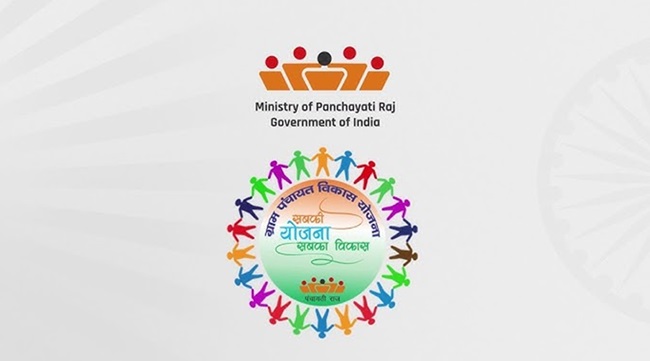The Ministry of Panchayati Raj launched the People's Planning Campaign for preparation of Panchayat Development Plans (PDPs) for 2025-26.

Launched:
- The campaign was launched by the Ministry of Panchayati Raj on 2nd October 2018 under the name ‘Sabki Yojana Sabka Vikas’.
Primary goal
- The primary goal of the Jan Yojana Abhiyan is to accelerate people’s participation in the process of preparing the Panchayat Development Plan (PDP).
- It encourages active community involvement in shaping local development initiatives.
Implementation:
The campaign is implemented at all three tiers of Panchayats
- Gram Panchayat
- Block Panchayat
- District Panchayat
Campaign Components:
Structured meetings:
- Ward Sabha, Mahila Sabha, Gram Sabha, Block Sabha and District Sabha organized to prepare Gram Panchayat Development Plan (GPDP), Block Panchayat Development Plan and District Panchayat Development Plan for the financial year 2025-26 Is going.
Identification of Development Gaps:
- The campaign involves preparation of Gram Sabha-wise calendar and identification of thematic development gaps based on the Panchayat Development Index (PDI), which are then presented during the Gram Sabha meetings.
Thematic Approach:
- The Campaign adopts a thematic approach based on localisation of Sustainable Development Goals using a ‘whole of government and whole of society’ approach to ensure comprehensive development.
Panchayat Development Index (PDI):
- PDI is a multi-domain and multi-sectorial index designed to assess the overall development, performance and progress of Panchayats, providing a tool for planning and tracking development. Serves as an important device.
Digital Transparency:
- The approved Gram Panchayat Development Plans (GPDPs) are published on the e-Gram Swaraj portal, ensuring transparency and accessibility for all stakeholders.
|
Constitutional Provisions
Article 40 (DPSP):
- Organization of Village Panchayats and endowing them with such powers and authority as may be necessary to enable them to function as units of Self Government.
73rd and 74th Constitutional Amendment Acts:
- Constitutional legitimacy given to the system of Local Self- Governments. Article 243G: Recognize the Panchayats as institutions of self-government, it mandates them to prepare plans for Economic Development and Social Justice.
|
Importance of Jan Yojna Abhiyan:
Promoting participatory governance:
- The campaign will accelerate development planning by increasing active participation of citizens in local governance
Decentralised development:
- It promotes decentralised planning, enabling tailored, localised solutions to development challenges.
Alignment with SDGs:
- The campaign supports localisation of the Sustainable Development Goals, ensuring that local plans contribute to the broader global development agenda.
Inclusive Empowerment:
- The campaign focuses on inclusion of all groups, including youth and the elderly, promoting social inclusion and equality.
Transparency and Accountability:
- The e-Gram Swaraj portal enhances transparency by making development schemes publicly accessible and promoting responsible governance.
Strengthening Local Institutions:
- The campaign builds the capacity of panchayats and community organisations, ensuring sustainable and effective governance.
Challenges of Jan Yojana Abhiyan
Awareness and capacity building:
- Limited awareness and lack of training for local leaders hinder effective participation and planning in remote areas.
Inadequate Infrastructure and Resources:
- Many panchayats face a lack of resources and infrastructure, which hampers the implementation of development plans.
Digital Divide:
- Poor internet access and digital literacy in rural areas limits the effectiveness of online platforms like e-Gram Swaraj.
Coordination Issues:
- Progress is slowed by challenges in aligning goals and coordinating between stakeholders such as government bodies and NGOs.
Financial problems:
- Limited funding at the panchayat level hampers the implementation of comprehensive development plans.
Way Forward:
Policy Integration:
- Align participatory planning with existing government policies to enhance effectiveness and inclusivity in development.
Strengthening Local Governance:
- Streamline local self-government processes to ensure greater community involvement and smooth plan implementation.
Community Capacity Building:
- Raise awareness about the importance of participation, particularly among vulnerable groups, and encourage their involvement.
Monitoring and Feedback Mechanism:
- Establish strong monitoring systems to track progress, assess outcomes, and incorporate community feedback into ongoing development efforts.
Behavioural change:
- Encouraging people to engage in governance by changing attitudes and empowering them is essential for sustaining their participation.



